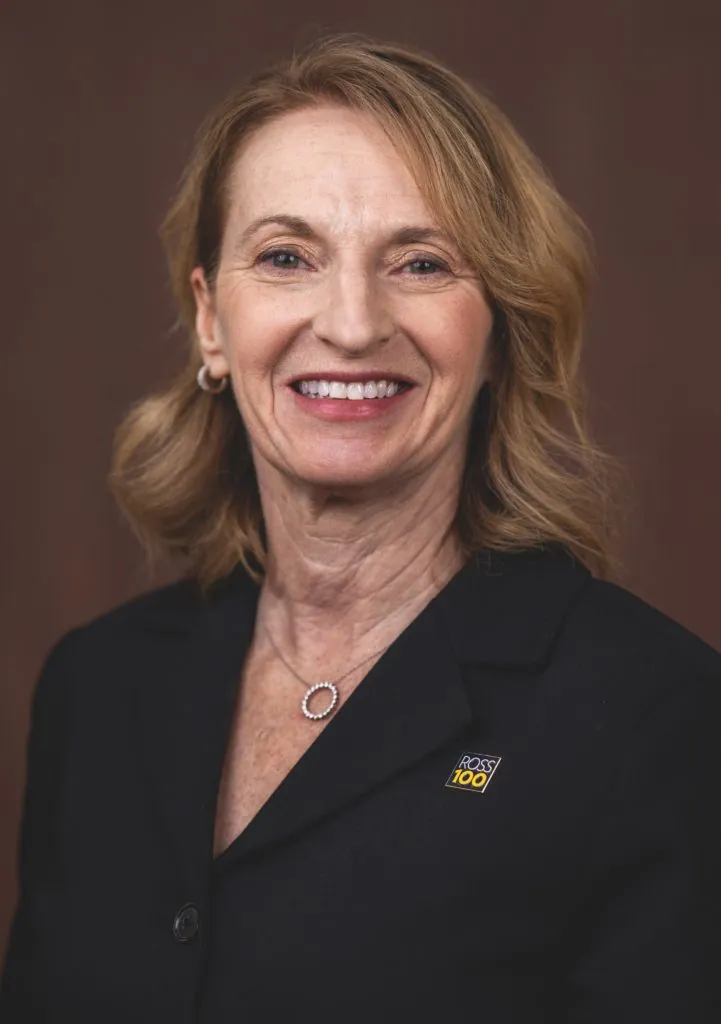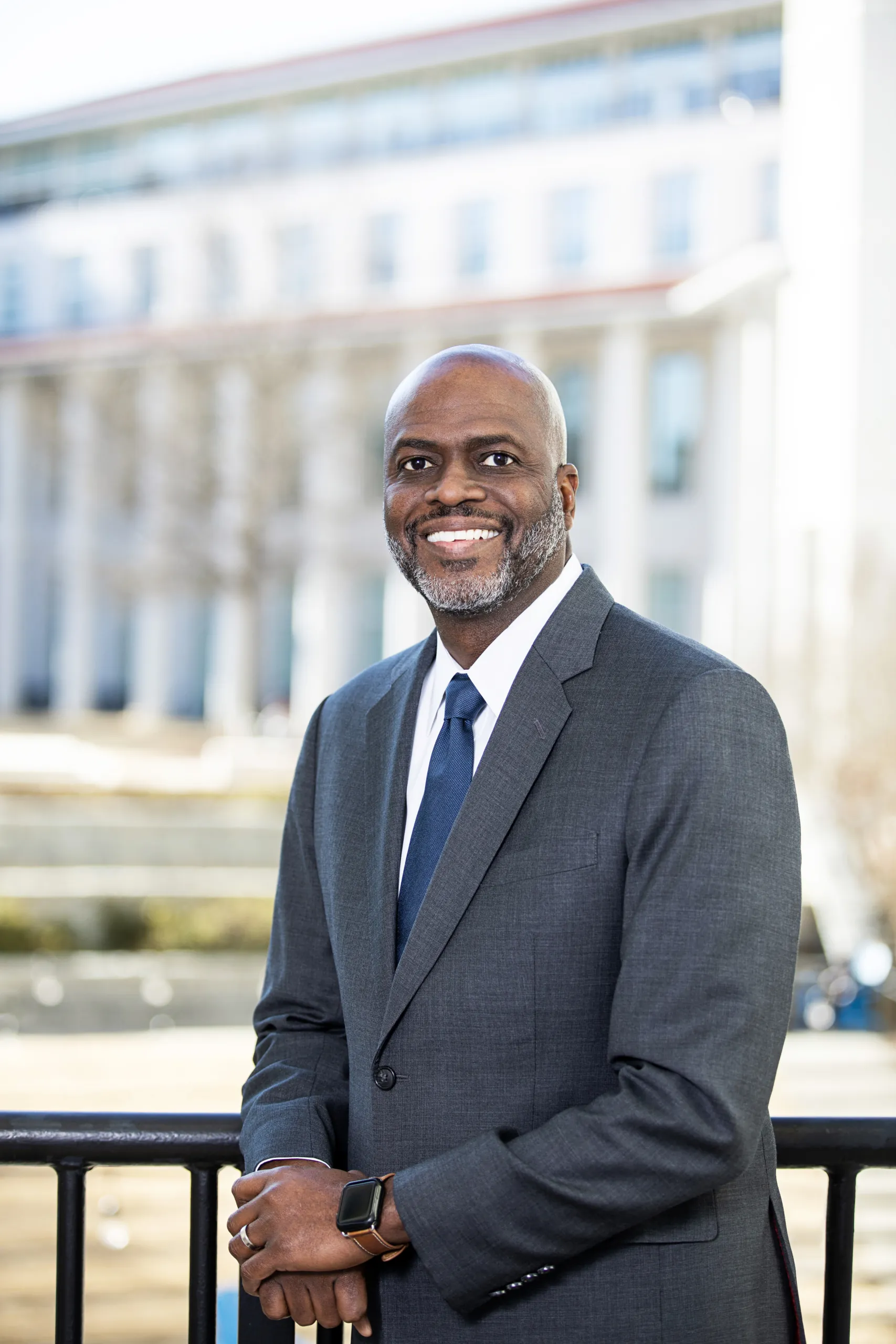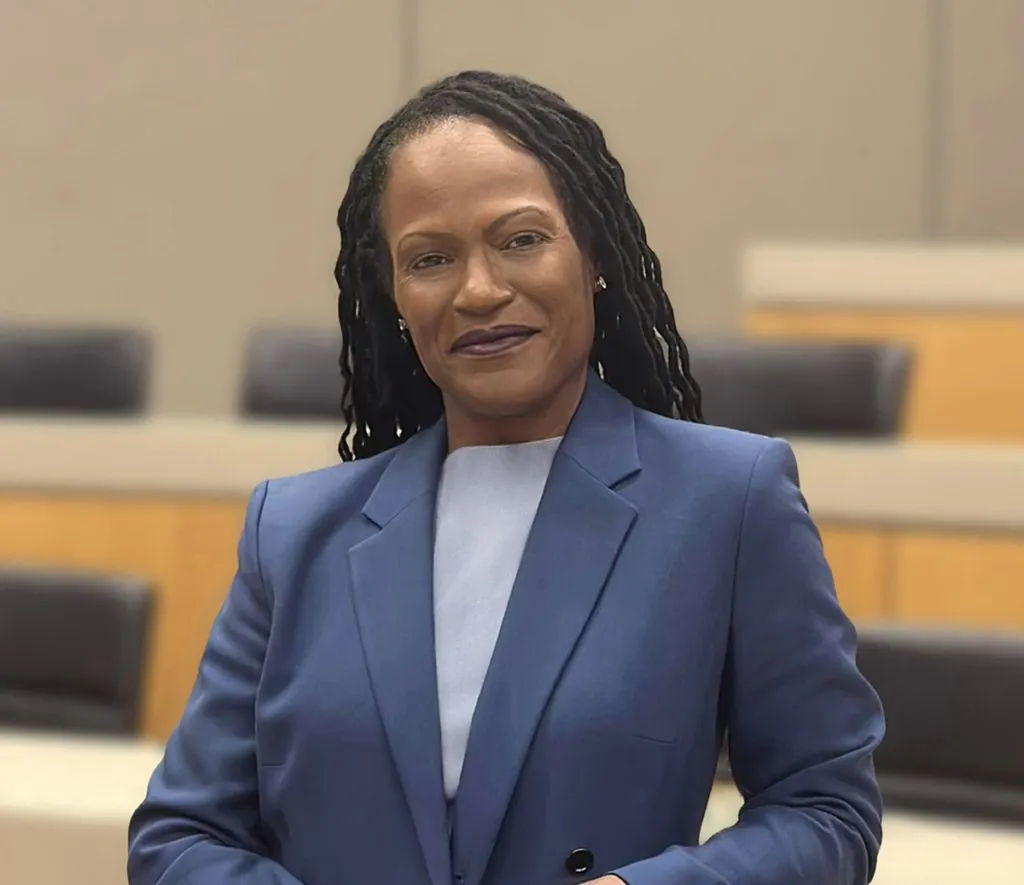Bussiness
Poets&Quants’ Annual New Year’s Predictions From Business School Thought Leaders


What does the future hold? No one really knows. But there is such a thing as an educated guess — and who better to make one than a host of PhDs, the brightest minds in business education?
That’s the reasoning behind Poets&Quants‘ yearly feature. Here are the prognostications for 2025. If you’re entering this world, already in it, or contemplating applying to business school, you’ll find lots to ponder — and plenty to discuss next time you’re in a room with a thought leader or two and need an ice breaker.


Toronto Rotman Dean Susan Christofferson: Business educators “will need to place a greater emphasis on the importance of resilience, continuous learning, and adaptability so students can learn from their failures and persist in the face of setbacks”
PREPARING LEADERS TO BE adaptive, creative, and ready for change will be more crucial than ever this year. The rapid pace of technological advancements, shifting economic landscapes, and evolving societal expectations will demand leaders who are not only adaptable but also proactive in navigating these changes. A growth mindset will be essential for leaders needing to innovate in an evolving economy. As business educators, we will need to place a greater emphasis on the importance of resilience, continuous learning, and adaptability so students can learn from their failures and persist in the face of setbacks.
Digital transformation will continue to be a dominant theme and as such, business schools will need to embrace and integrate new technical skills into the curriculum such as artificial intelligence, data analytics and blockchain. But technical skills are not enough. In fact, the human skills needed to develop strong and resilient teams are going to be more critical than ever in navigating complex organizational dynamics arising as companies incorporate new technological advances and face shifts in the geopolitical landscape.
—Susan Christoffersen, Dean and William A. Downe BMO Chair in Finance, Rotman School of Management at the University of Toronto


Michigan Ross Dean Sharon Matusik: “We have an increasing duty to not only our faculty and students but also to our communities”
AS I NOTED IN my predictions for last year, the level of uncertainty – involving technology, a shifting geo-political landscape, the changing labor market, environmental challenges, and social issues – continues to escalate. In 2025, I predict these sources of uncertainty will persist and be joined by the changes that accompany any new presidential administration in the U.S. Couple that with changes to leadership in countries around the globe, and you get an environment where I predict being innovative, adaptive, adept at drawing on relevant data and research, and being able to access a network of accomplished colleagues will shape who leads and who follows in the future. The other pressure that higher education generally, and business higher education more specifically, faces is showing its relevance and value as higher education institutions face greater public scrutiny.
Here at Michigan Ross, we are very deliberate in creating an educational experience that emphasizes decision-making under uncertainty, using data and analytics to inform this decision-making, working collaboratively, and leading in a continually changing environment. The University of Michigan is among the top five universities in the country in producing the CEOs of Fortune 1000 companies. I have the great honor of regularly talking with these alumni, and they cite the action-based learning orientation of their experience here as being critical to their long-term career success, particularly because it has prepared them to lead in the face of change and uncertainty. In our last academic year alone, 1,051 Michigan Ross students engaged in 210 projects, with 171 sponsoring organizations across 21 countries in 24 states across our portfolio of degree programs. Our sponsor firms – many among the most desirable companies to work for in the world – estimated these projects generate over $3.21B in revenue and $1.25M in cost savings upon full implementation. These projects also create an impact because they bring our research faculty who teach these courses in close contact with the key challenges of the day that executives are facing. This is one of the ways that Michigan Ross simultaneously creates value for students and the business world while also inspiring our faculty to ask important research questions that matter to executives as well as academic thought leaders. I predict that business students will increasingly value educational experiences like these that prepare them to thrive in an increasingly uncertain world and connect them to firms they want to work for.
I also predict that business schools will be under greater pressure to demonstrate their impact and value to society. Faculty research that is informed by the very real challenges executives are facing and mechanisms to provide direct value to businesses are two examples of how Michigan Ross demonstrates tangible impact. In addition, business leaders will be called upon to contribute solutions to the grand challenges of the day, such as climate change, economic inclusion, and technology changes, such as AI reshaping our future. Providing a range of ways to prepare these leaders with fundamental business knowledge and the ability to apply it in the face of specific challenges means extending access to our educational offerings. At Michigan Ross, we are continually elevating the curriculum and experiences of our degree students, including in key areas like AI, and we are also robustly growing our executive education offerings. As part of this effort, we are creating a second location for the Ross School in the heart of the arts district in downtown Los Angeles to complement many of our academic offerings in Ann Arbor and Detroit. The new Michigan Ross Los Angeles campus will house the Executive MBA program that we have already been delivering out of LA for a decade, and expand our ability to serve executive education clients on the West Coast, and anchor unique/bespoke programs for executives and organizations from around the world, in particular Latin America, Southeast Asia, and the Middle East.
Overall, the year ahead will create opportunities for business leaders who are adept at thriving under uncertainty. The ability to use decision-making models and styles for this context, a continual learning orientation, and an expansive, accomplished network will differentiate who is best positioned to take advantage of opportunities that lie ahead. Business schools that can provide this knowledge and access and clearly show their positive impact more broadly are well-positioned for the year ahead. It’s an important time across the higher education landscape. We have an increasing duty to not only our faculty and students but also to our communities. Knowledge, matched with the right tools, can educate our students, who, in turn, will be tasked with leading the world forward.
—Sharon Matusik, Edward J. Frey Dean at Michigan Ross School of Business


Duke Fuqua interim Dean Mary Frances Luce: “Our students are motivated to enter business ecosystems where climate goals are a priority, and it is our responsibility to meet that motivation with a curriculum that creates a useful foundation they can leverage for years to come”
CONSIDERING THE ROLES OF individuals and private organizations in addressing the climate challenge, 2025 will be a significant year not only for us at The Fuqua School of Business but for organizations across every sector. I resolve to make progress on climate goals, both as a leader at Fuqua (there is so much promise in the expertise we can leverage!) and as an individual (an area where there is always room for improvement!).
Our students are motivated to enter business ecosystems where climate goals are a priority, and it is our responsibility to meet that motivation with a curriculum that creates a useful foundation they can leverage for years to come. This requires actively shifting our talent and focus to innovation, pushing boundaries, and rallying the strengths of our inclusive network to face urgent global challenges. Many of us at Fuqua will spend 2025 collaborating with our colleagues at Duke’s Nicholas School of the Environment on a new interdisciplinary program addressing these very needs.
That said, I am also inviting our community to welcome this new year with grace and humility. I am so proud of my community at Duke, at Fuqua, and beyond. I hope we all find 2025 to be a year where we can leverage our strengths to innovate, to experiment, and to care for one another.
—Mary Frances Luce, interim Dean and Robert A. Ingram Professor of Business Administration at Duke Fuqua School of Business


HEC Paris’ Brad Harris: “I’m convinced we’re approaching some break points on how we deal with climate, sustainability, globalization, diversity and inclusion, and more”
WHAT WILL 2025 BRING? Probably a lot more of the same, but different…
Like 2024 and the years before it, my guess is that 2025 will be marked by complexity and change: radical and incremental technological innovations, more geopolitical tensions and conflict, new evolutions in the way people work, and increasing pressure for business leaders to “fix it all” (e.g., climate, sustainability, tech regulations, societal issues, and more)—and that’s just the surface. We will need sharp, courageous, and high-character business leaders more than ever, and while I think the perceived value proposition of MBA and EMBA programs will continue to be questioned, the actual value proposition has perhaps never been higher. It’s up to us—faculty, staff, administrators, and alumni—to bridge that gap. I believe that b-schools and MBA/EMBA programs have an important place in the conversation.
So, what’s different? AI has not yet delivered on its promise, but it might be ready to breakthrough in 2025. If and when that happens, we’re in for a wild ride. The way we work, the way we interact with coworkers and customers, and maybe even what we believe to be true will change in ways that make the status quo obsolete. This is exciting, perhaps, but it won’t be a smooth or linear unfolding. On top of that, I’m convinced we’re approaching some break points on how we deal with climate, sustainability, globalization, diversity and inclusion, and more. The solution is probably not to [just] “do the same, but more,” but rather “we absolutely have to approach these challenges differently.” Business leaders and prospective business leaders—e.g., MBA and EMBAs—will need to be smart and adaptable, as always, but they’re going to need the courage to lay down strategic “bets” about how they approach these challenges. In a lot of ways, the thorniest issue for leaders will be deciding what not to do in a complex and charged world. Separating buzzwords, bright shiny objects, and BS from strategic priorities will be the name of the game…still.
As a final point, I’m guessing we eventually hit a point (probably post-2025) where AI and whatever tech comes next become so ubiquitous that some of the old virtues—trust, character, empathy, interpersonal relationships, etc.—become the rarest and most valuable currency a leader can possess. We’re preparing leaders for that here at HEC Paris. Students in our programs will master business fundamentals, learn about the latest technological innovations, and meet people from all over the world, but they’ll also be pushed to look inward for the most transformative gains.
—Brad Harris, Associate Dean of MBA Programs and a Professor of Management and Human Resources at HEC Paris


Emory Goizueta’s Brian Mitchell: “It is important that we develop ethical guidelines to shape AI as we integrate it into our business practices and lives”
IN 2025, I PREDICT ethics to resurge as one of the hottest topics discussed in business schools around the world. At Emory University, we have the privilege of having a world-class Center for Ethics on campus which has been an important partner for us in the Goizueta Business School. In the coming year we will continue exploring creative ways to engage our Center for Ethics, inside and outside the classroom for the benefit of our students as the topic returns to center stage for a couple of key reasons.
First among these reasons is that we are entering into an economic period where growth will be driven, in part, by decreased regulations. Policy makers and influential business leaders like Jeff Bezos appear to be aligned on this approach. And while decreased regulation may lead to a friendly environment for innovation and growth, regulations sometimes act as guardrails against unethical behavior and business practices. Serious work within business schools around ethics can serve as a ballast in this environment, and help our students learn to lead effectively while focusing on both growth and values. I expect to see an increasing focus on ethical questions and implications in our case discussions in the classroom. I also expect our experiential learning projects and initiatives to include explorations of ethical questions in their rubrics and assessments. Finally, as it relates to decreased regulations in business, I expect us to increase our engagement with the vast number of business leaders in our community, bringing to life the importance of operating ethically while remaining committed to creating value for stakeholders.
The second reason for prioritizing ethics may be more obvious, but it’s worth noting, nevertheless. We are still very much in the “Wild Wild West” era of artificial intelligence. Many business school leaders are rightly focused on the amazing potential of AI tools and machine learning. However, the development of AI also is fraught with challenges. At Emory, our Center for Ethics is an emerging leader in the ethics of AI as highlighted by our faculty’s scholarship, publications, and presentations. AI platforms can be deeply biased, misguided, or lack transparency. As they have increasing utility in the business world, AI itself could begin making moral decisions with real impact on our lives; we are entering the age of Moral Machines. It is important that we develop ethical guidelines to shape AI as we integrate it into our business practices and lives. I would argue that business leaders have a special obligation here because of the scale and reach of products and services in a consumer-based society.
Thankfully, the study of ethics is not new to business schools. But I do expect new energy, emphasis, and programming around this topic as we adjust to decreased regulation and increased AI exploration in 2025.
—Brian C. Mitchell, Associate Dean, Full-Time MBA Programs, Goizueta Global Strategy & Initiatives, Emory University Goizueta Business School


London Business School’s Oded Koenigsberg: “Whatever the program format – online, in-person or blended learning – business schools in 2025 will need to ensure contemporary business issues are at the heart of the curriculum”
OUR POST-PANDEMIC WORLD has been shaped by smart tech and smart ways of working. Looking to 2025 and beyond, it is likely that the popularity of flexible program formats will continue to rise and that we will see a growing demand for smart study. We have already seen an increased desire for stackable qualifications, which is why we are developing programs like our One-year MBA for experienced masters graduates.
The world faces big challenges: social inequality, geopolitical fragmentation, humanitarian crises, climate change, shifting economies and the resurgence of populism. And they probably will not be solved by further fragmentation. That’s why for a global school like LBS, bringing together diverse groups of the best minds, and offering access to an excellent education and for a global network, will always be important.
We will do that in some new and exciting ways, like LBS Online – self-paced courses you can take from anywhere, with dedicated Learning Manager support and a global online network of peers from around the world. Whatever the program format – online, in-person or blended learning – business schools in 2025 will need to ensure contemporary business issues are at the heart of the curriculum. Business leaders today, need a business education that gives them the confidence to tackle big challenges, and the skills, frameworks, and tools to deliver for people, planet, and profit.
—Oded Koenigsberg, Deputy Dean, Degree Education and Digital Learning, London Business School


Duke Fuqua Professor Ashleigh Shelby Rosette: “Schools will need to refine recruitment strategies, leverage data-driven insights, and proactively address prospective students’ interests and concerns to stay competitive. Building stronger partnerships with international stakeholders seems especially important, as it will help schools adapt and further develop resilience tactics”
AS I LOOK TO 2025, I see business education dealing with a dynamic mix of challenges and opportunities. The year will focus on responsibly leveraging technological advancements, addressing complex societal issues, and adapting to evolving regulatory frameworks.
As AI continues to change the way we do business, I expect that schools will remain focused on taking advantage of its innovations while placing an even greater emphasis on tackling the ethical and societal challenges that derive from its use. Business schools will need to emphasize leadership capabilities entrenched in empathy, ethical judgment, and purpose. This will help to ensure that our future leaders can balance AI-driven efficiency with the need for interpersonal connection and trust. This two-pronged approach positions business schools to develop leaders who can harness AI’s potential while also focusing on the welfare of people and society.
The evolving dynamics of diversity, equity, and inclusion (DEI) will also remain an important consideration. Schools must prepare leaders to negotiate these complexities thoughtfully, emphasizing strategies that resonate across diverse contexts. By targeting high-impact, transformative learning opportunities, our programs can equip students with cultural competence and the ability to effectively lead diverse teams that are positioned in an ever-expanding global workforce.
Additionally, navigating shifting regulatory policies will require business schools to remain flexible and responsive—a challenge I believe they are well-equipped to meet. Schools will need to refine recruitment strategies, leverage data-driven insights, and proactively address prospective students’ interests and concerns to stay competitive. Building stronger partnerships with international stakeholders seems especially important, as it will help schools adapt and further develop resilience tactics. Through this adaptability, business schools can sustain their global appeal while also driving innovation in a rapidly changing global environment.
I see 2025 as a year with a lot of potential for business schools to play an important role in influencing our future leaders. I’m hopeful for a transformative year—one that offers unconventional paradigms and embraces new opportunities. In a world shaped by technological evolution, evolving equity dynamics, and global uncertainty, leaders will need to adapt both with agility and purpose. I believe that business schools will be instrumental in preparing leaders to navigate the blurred boundaries between organizational goals and societal responsibilities. They will emphasize collaboration, stakeholder engagement, and the ability to lead in multi-stakeholder environments where profitability, sustainability, and equity converge.
—Duke Fuqua Professor Ashleigh Shelby Rosette, James L. Vincent Professor of Leadership
Next Page: Prognostications from deans at Cornell, Berkeley Haas, INSEAD and more.










